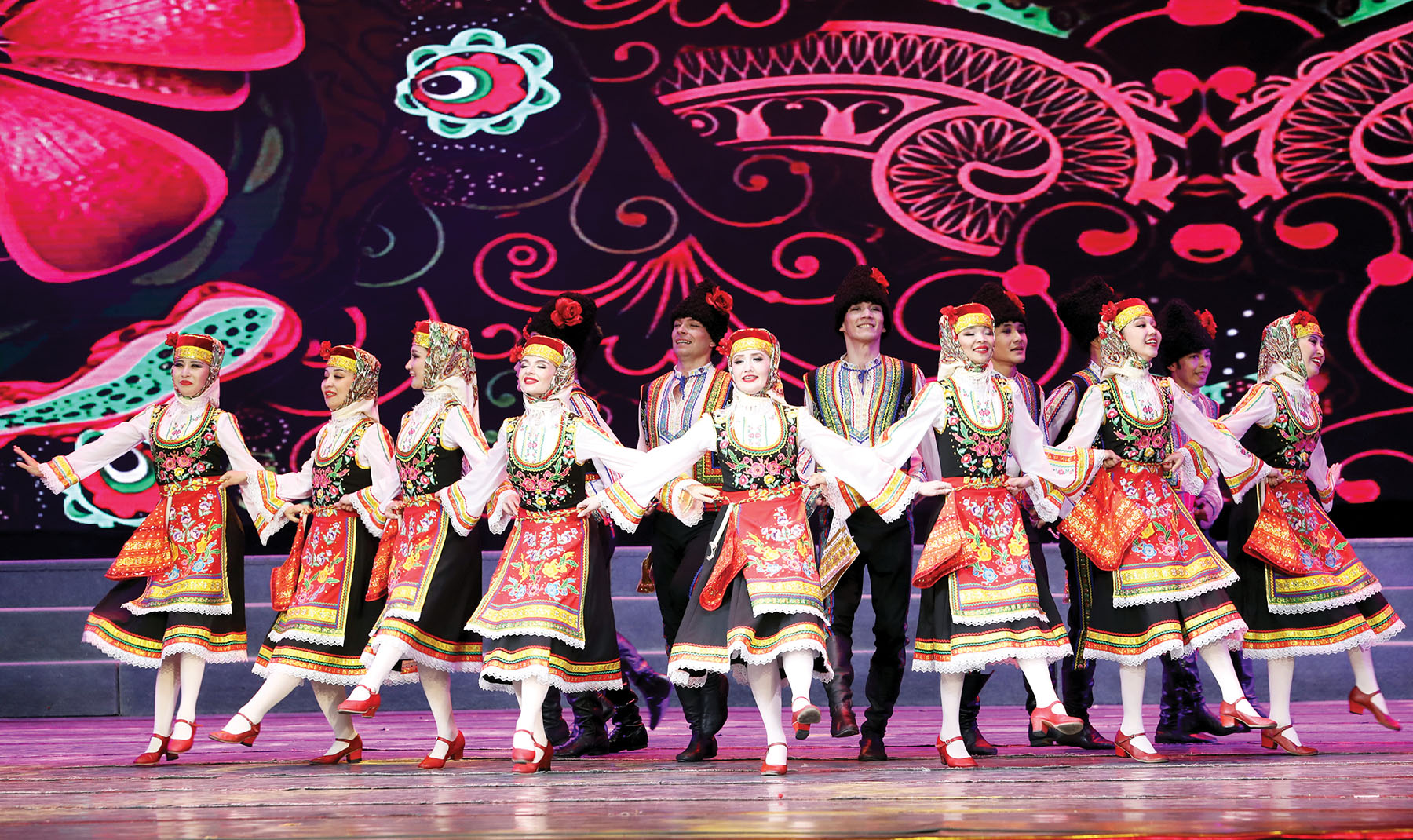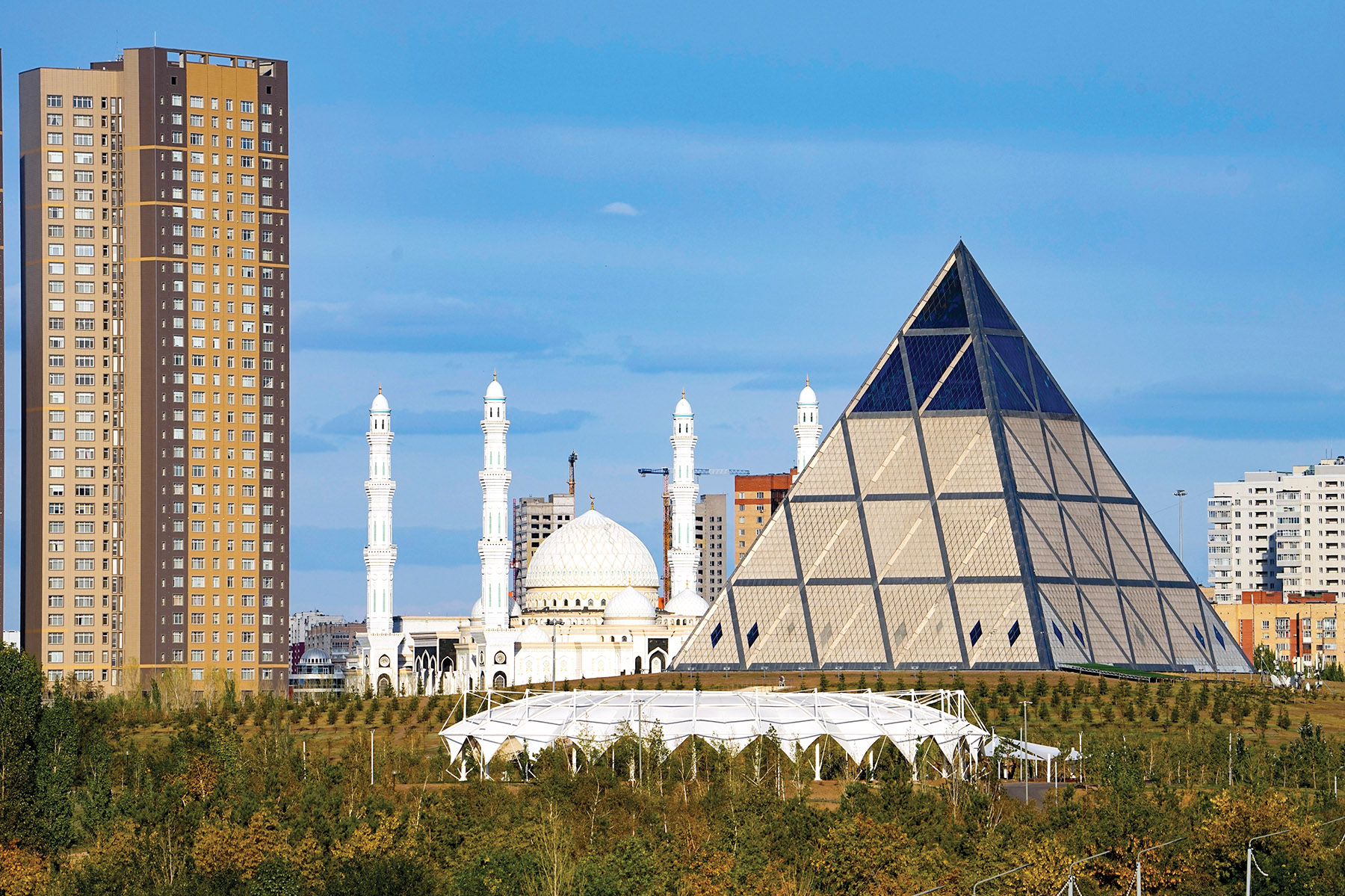SCO meeting set to chart path for further cooperation among member states to advance regional stability, prosperity

The Shanghai Cooperation Organization (SCO) summit in Kazakhstan’s capital Astana next week will see leaders discussing and charting a blueprint for the organization’s future development, while also using it as an opportunity to reiterate calls for unity among developing countries, officials and scholars said.
During the July 3-4 summit, leaders of SCO member states will exchange views on a wide range of topics including politics, trade, economy, and culture. Leaders of observer states and dialogue partner countries will also attend, the Kazakh government said.
A series of documents are expected to be signed, including the SCO Development Strategy until 2035, according to Kazakh officials.
Since being founded on June 15, 2001, in Shanghai, the SCO has made remarkable achievements in maintaining the region’s security and stability, deepening practical cooperation in various fields, and increasing its international influence and appeal, analysts said.
SCO Secretary-General Zhang Ming suggested that member states should continue to carry forward the Shanghai Spirit and advance the implementation of the organization’s teamwork in various fields.
As a tenet of the group, the Shanghai Spirit espouses mutual trust, mutual benefit, equality, consultation, respect for cultural diversity, and the pursuit of common development.
While attending a forum in Tashkent, Uzbekistan, earlier in June, Zhang called for strengthening reforms and improving the organization’s work to ensure that the SCO “keeps pace with the times and moves to new heights”.
Over the past 23 years the SCO has evolved into a leader in security, a bridge of cooperation, a bond of friendship, and a constructive grouping in the region, experts said.
Guan Xueling, director of Renmin University of China-St. Petersburg State University Center for Russian Studies, said the upcoming summit will testify to the organization’s growing influence and international status.

The agenda facing member countries includes plans for further development, how to better synergize the China-led Belt and Road Initiative with the development visions of fellow member countries, and how to truly realize the strategic autonomy of the Global South, Guan said at a recent seminar in Beijing.
“The purpose and norms pursued by the organization are gaining wider recognition by the international community,” she said.
“Given the international turmoil, crises, and deficit in global governance, the SCO has become a very important player in maintaining the region’s security and stability and fostering development and prosperity,” Guan added.
Zhao Huirong, a research fellow at the Chinese Academy of Social Sciences’ Institute of Russian, Eastern European, and Central Asian Studies, said the SCO is facing several opportunities as well as multiple challenges.
“The opportunities include the fact that the SCO is being favored by an increasing number of developing countries because of its commitment to the Shanghai Spirit amid the persistent geopolitical confrontations in the world,” Zhao said.
At the same time, the SCO is facing a much more complex geopolitical environment, a tougher regional and international security setting, and several alarming areas related to unconventional security, she added.
Vladimir Norov, former SCO secretary-general and former foreign minister of Uzbekistan, said the organization’s spirit of solidarity, mutual trust, and collaboration is “particularly precious in today’s world”.
“The SCO should keep on cooperating in this spirit in the fight against the three evil forces, tackling climate change, the response to cyberattacks, and ensuring the security of artificial intelligence,” he told the 21st Century Business Herald newspaper. The three evil forces refer to terrorism, separatism, and extremism.
The upcoming Astana summit has also turned the spotlight on the thriving bilateral relations between Kazakhstan, the host of the summit, and China, which will assume the rotating presidency of the group in the second half of this year.

Diplomats noted that the China-Kazakhstan relationship is in its best shape since the establishment of their diplomatic relations, with the heads of state of the two countries maintaining regular interactions. Last year, President Xi Jinping and Kazakh President Kassym-Jomart Tokayev met twice.
During a meeting in Astana with visiting Chinese Foreign Minister Wang Yi in May, Tokayev underscored that “Kazakhstan is a good partner that China can always trust”.
Tokayev said his country is willing to engage in closer high-level exchanges with China and cooperate more closely and efficiently on international issues.
The two countries have succeeded in carrying out several important Belt and Road cooperation projects, and are nurturing new cooperation avenues such as automobile manufacturing and new energy.
China is Kazakhstan’s top trading partner. Trade between the two countries has reached a record high as it hit $41 billion last year, up 32 percent year-on-year.
Zhang Xiao, Chinese ambassador to Kazakhstan, said the two sides have implemented a mutual visa-exemption policy, and Kazakhstan’s Year of Tourism opened in China this year, which will further boost mutual understanding between the two peoples.
“China and Kazakhstan share the same or similar positions on international and regional issues, which is particularly important in the current turbulent international situation,” the envoy said during a recent lecture at the Eurasian National University in Astana.
“It is believed that China and Kazakhstan, united and working together, can cope with all the risks and challenges,” he added.
This year marks the 32nd anniversary of the establishment of diplomatic relations.
In the past 32 years, annual bilateral trade has grown more than 100 times from $400 million and now accounts for nearly one-third of Kazakhstan’s total foreign trade, said Kazakhstan’s Ambassador to China Shakhrat Nuryshev.
“Kazakhstan has become a major economic and trade partner of China in Central Asia,” Nuryshev said in a recent interview with People’s Daily. “Based on the trade data for the first quarter of 2024, both sides are very optimistic in their projections for trade growth this year.”
In 2013, Xi first proposed building the Silk Road Economic Belt — a key component of the Belt and Road Initiative — in Kazakhstan. As a key hub in the Eurasian continent, the country was among the first batch of countries that extended support to the BRI.
“The initiative has had a positive impact on the well-being of peoples of the countries involved, especially those in developing countries,” said Nuryshev.
“Kazakhstan has seized the opportunity to play a pivotal role in the areas of transportation and logistics to serve as a key link between the Eurasian continent and the Asia-Pacific region,” he added.


